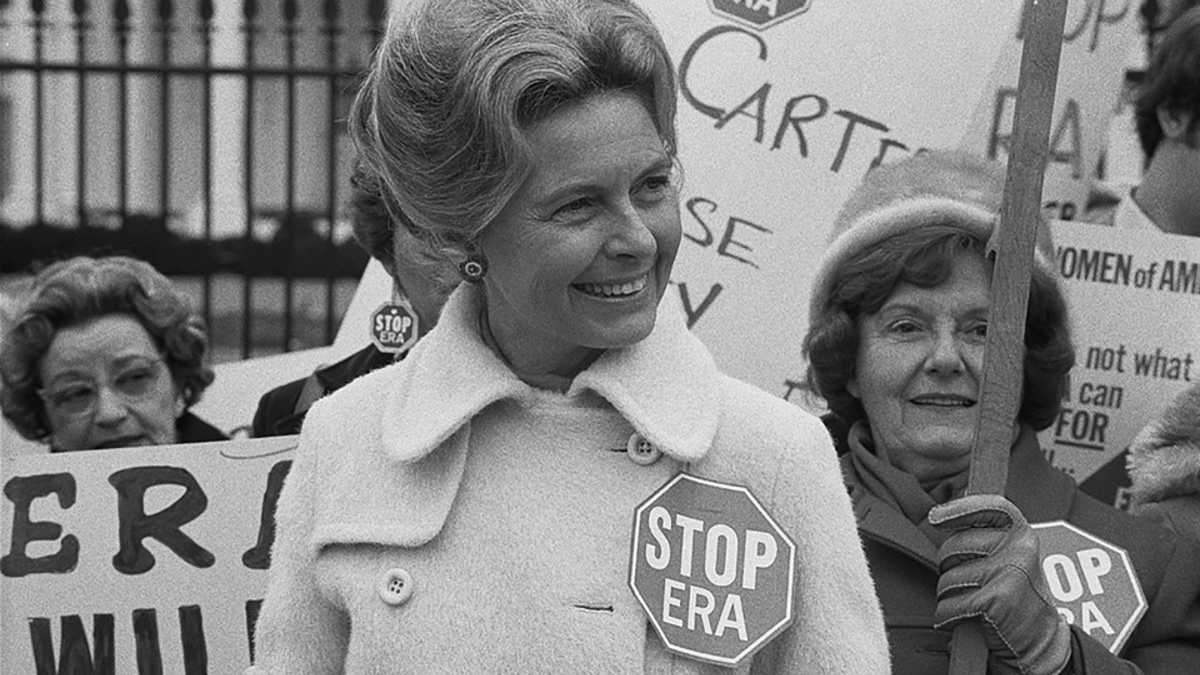
FILE -- Phyllis Schlafly (Library of Congress)
Being Phyllis Schlafly’s niece was a bit like watching Fox News instead of CBS: I was always presented with the “other” side of a controversial subject, the one that’s rarely heard but is hugely instructive. Because of her example, I’ve always known there’s more to a sound bite than meets the eye.
For me, that’s Phyllis’s greatest legacy. I know that if I want truth, I have to dig to find it. I never assume that what I hear—whether it’s my neighbor’s comment or the newscaster’s—is enough to establish an opinion.
Of course most Americans will remember Phyllis differently. A firebrand conservative, she was both revered and reviled.
She was also misunderstood—which, to be fair, was largely of her own doing. Phyllis enjoyed making outlandish comments to rile the left. It was a bona fide sport.
The women in my family knew of only one way to succeed: hard work and sacrifice. They did not view marriage and motherhood as a liability; they did not believe American women were oppressed; and they did not believe in government overreach. So by definition, they couldn’t have been feminists.
But the result is that her message was lost on everyday folks who didn’t follow her work closely enough to take her comments with a grain of salt. Especially her comments about feminism. I’ve met very few women throughout my life who truly understood what Phyllis stood for when it came to that subject.
Allow me to clear it up.
Phyllis Schlafly was not a feminist. She fought against the cultural narrative that women are victims of men and of society and that we need government policies to help level the playing field.
This is no longer an unpopular view—most Americans do not consider themselves feminists. Indeed, it would be fair to say Phyllis was ahead of her time.
In fact, all the women in my family were. They were all highly educated; they were all “working women”; and they were all wives and mothers. But they didn’t try to accomplish everything all at once, nor did they blame men and society for whatever struggles they had along the way.
The women in my family knew of only one way to succeed: hard work and sacrifice. They did not view marriage and motherhood as a liability; they did not believe American women were oppressed; and they did not believe in government overreach. So by definition, they couldn’t have been feminists.
Still, for most of Phyllis’s life feminism was fashionable; and her countercultural stance caused people to describe her this way: “That’s the woman who’s against women’s rights.”
Phyllis Schlafly was not “against women’s rights.” She was against the feminist version of women’s rights. I don't know anyone who's “against women’s rights.” But which rights, exactly, are we talking about? The phrase “women’s rights” isn’t a monolith.
An added problem Phyllis had was she wasn’t your run-of-the-mill housewife, yet her arguments were in favor of the traditional family. This made some people view her as a hypocrite. I can see how, to the casual observer, it seems like a paradox. But a deeper understanding of Phyllis proves otherwise.
Despite her personal ambitions, Phyllis Schlafly had enormous respect for the work women do at home as wives and mothers and an excellent understanding of the family as the building block of society. That she chose to live differently than the typical housewife of her day doesn’t negate that respect and understanding.
In some ways, I think Phyllis was envious of women who devoted their lives entirely to caring for home and children—precisely because she wasn’t cut out for such a life. But she never told other women what they should or shouldn’t do. She merely stood up for the homemaker role.
I see nothing duplicitous there.
What I do see is this: Phyllis Schlafly’s life, not to mention my mother’s and grandmother’s, proves women don’t need feminism to be happy or successful. Their lives demonstrated, to me anyway, that there’s a completely different way to view women and their place in the world—one that’s truly empowering.
“The feminist movement is not about success for women,” Phyllis said in an interview with Time. “It is about treating women as victims and about telling women that you can’t succeed because society is unfair to you, and I think that’s a very unfortunate idea to put in the minds of young women because I believe women can do whatever they want.”








































